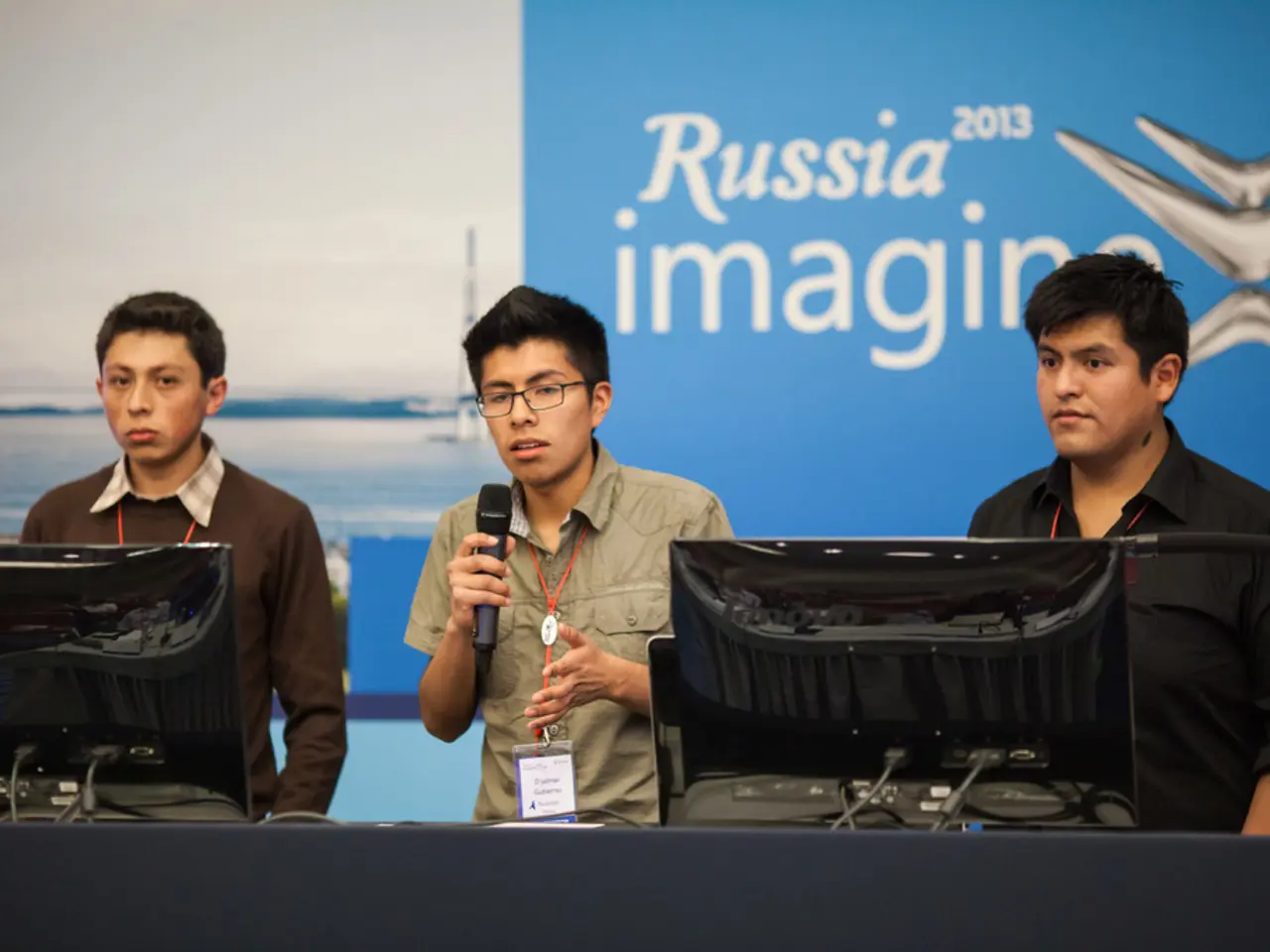Ukrainian envoy urges Merkel to issue caution to Putin
In the face of increasing Russian troop activities at the border with Ukraine, the Ambassador of Ukraine in Germany, Andrii Melnyk, has issued a clear warning. Melnyk is demanding a strong signal from German Chancellor Angela Merkel to Russian President Putin, urging for an "ultra-strong warning" to Moscow.
Melnyk's call comes as Germany and its allies, particularly NATO members, have responded firmly to Russia's potential aggression. This response is characterised by increased military deployments, substantial financial and military aid to Ukraine, and a robust NATO strategy to deter further Russian aggression.
Germany has deployed fighter jets as part of NATO's Enhanced Air Policing missions in Eastern Europe. In response to Russian drone attacks, two German Typhoon jets were scrambled to monitor the Romanian-Ukrainian border.
In terms of broader support, Germany has made available or earmarked approximately 34 billion euros in bilateral civilian support and around 40 billion euros in military assistance to Ukraine. This aid includes air defense systems, winter relief, energy support, humanitarian aid, and mine clearance. Germany also supports Ukraine’s EU accession process and signed a bilateral security cooperation agreement with Ukraine in February 2024.
NATO, in response to the increased threat from Russia following its invasion of Ukraine, has significantly restructured its force posture in Eastern Europe. This includes establishing brigade-sized forward-deployed battle groups capable of meaningful territorial defense, pre-positioning equipment stockpiles, and conducting large-scale military exercises. Air defense systems have become a priority, with alliance members rapidly acquiring modern surface-to-air missile systems and restoring integrated air defense networks.
However, not all voices within Germany's political landscape share the same sentiment. Gregor Gysi, a foreign policy expert from the Left party in the Bundestag, emphasizes the importance of clear diplomatic language from the federal government. Gysi interprets the troop movements within Russia as an expression of a lack of diplomatic consideration, but does not indicate any direct threat of a new military attack on Ukraine in his statements.
Gysi's comments do not suggest any immediate need for an international boycott, isolation, or sanctions against Russia. Similarly, his statements do not discuss Ukraine's admission to NATO or Germany's role in supporting Ukraine's defense capabilities.
Jürgen Hardt, foreign policy spokesman for the CDU/CSU parliamentary group in the Bundestag, warns of renewed escalation of the conflict and increased danger for separatists in Donbass directed by the Kremlin not to adhere to the Minsk agreement. Manuel Sarrazin, Eastern Europe expert of the Greens in the Bundestag, states that the Kremlin wants to make politics with a "calculated escalation" in Eastern Ukraine.
In case Russia expands its aggression in Ukraine, Melnyk demands international boycott and isolation of Russia, recognition of its leadership, new severe sanctions, full termination of economic relations, complete embargo on gas, oil, and coal imports, final ban on the Nord Stream 2 pipeline, freezing of Russian state property.
In the end, the political and military response from Germany and its allies is a delicate balance between diplomacy and deterrence, as they navigate the complex geopolitical landscape of Eastern Europe.
Read also:
- Weekly happenings in the German Federal Parliament (Bundestag)
- Southwest region's most popular posts, accompanied by an inquiry:
- Discussion between Putin and Trump in Alaska could potentially overshadow Ukraine's concerns
- Massive 8.8 earthquake hits off the coast of Russia's Kamchatka Peninsula, prompting Japan to issue a tsunami alert.








